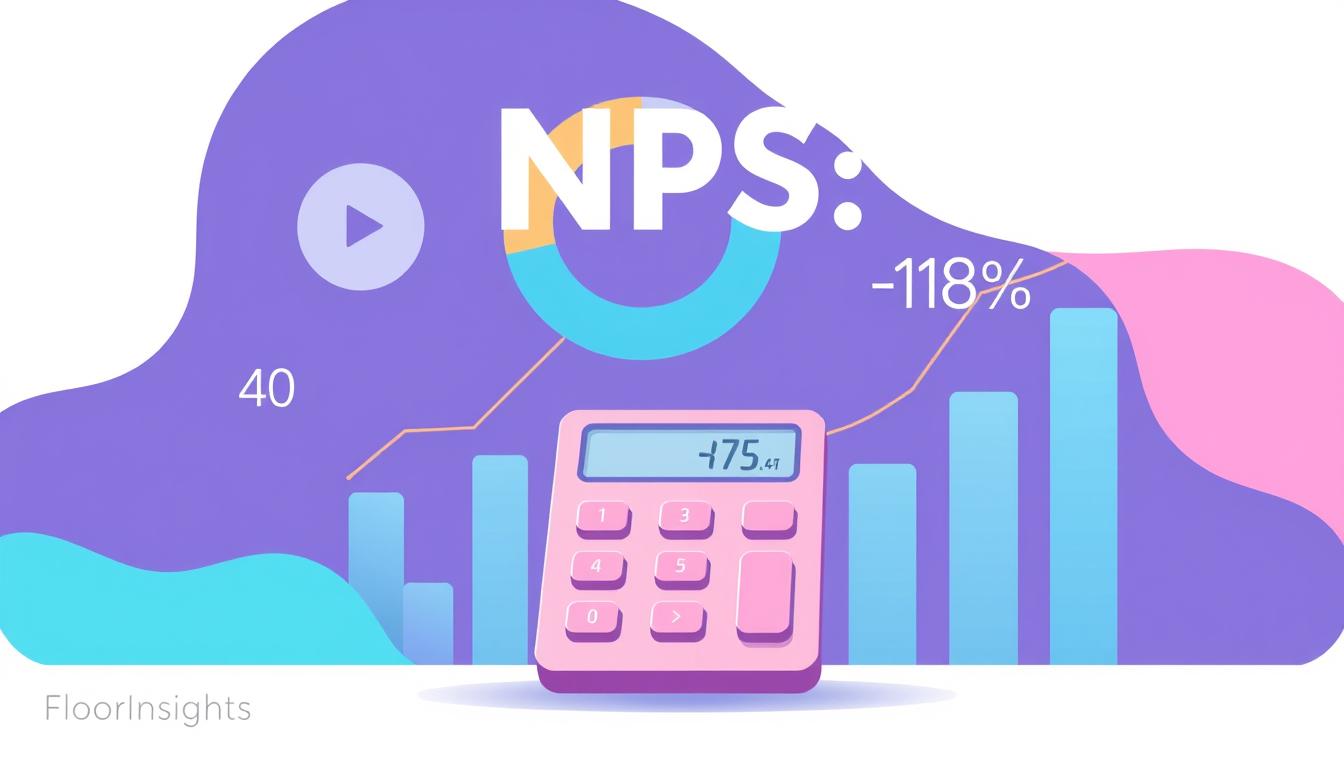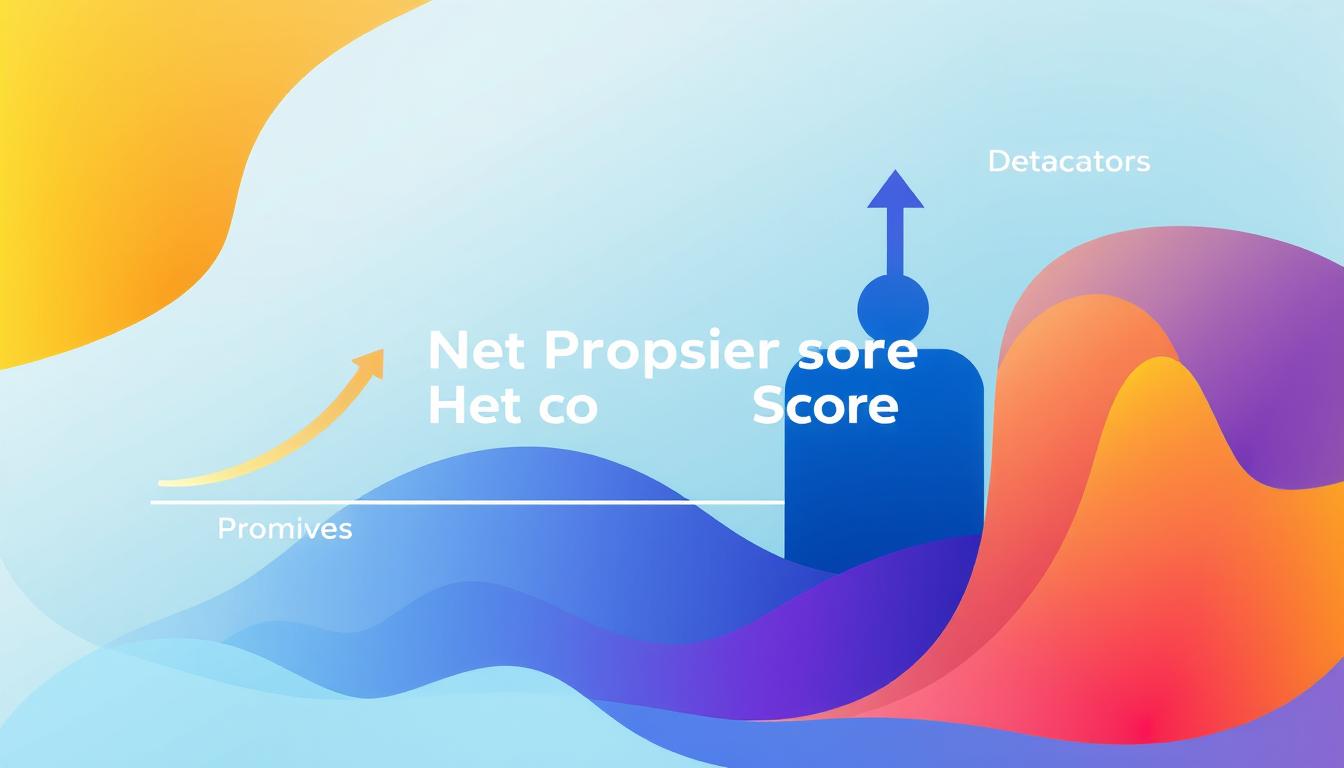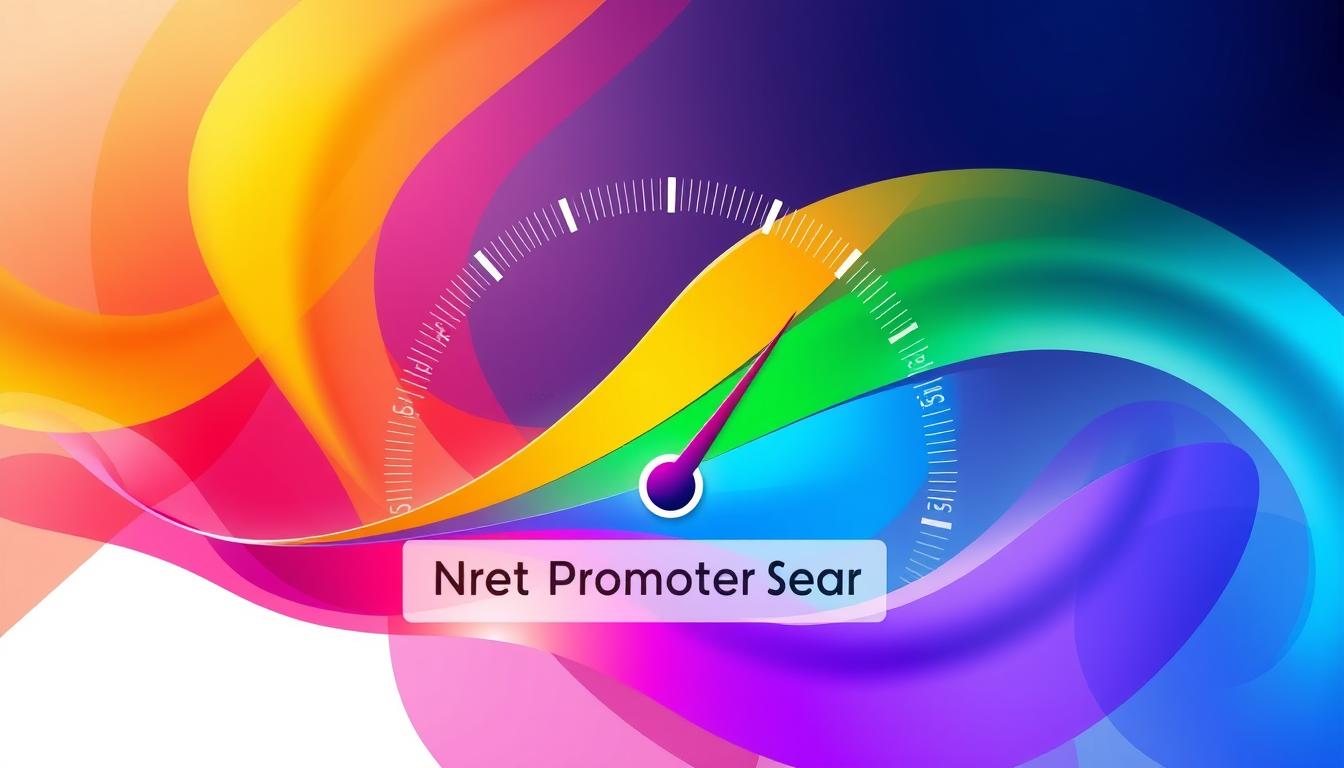In today’s data-driven marketplace, the importance of understanding customer feedback cannot be overstated, particularly when it comes to the Net Promoter Score (NPS). As organizations, we strive to harness NPS data to derive valuable customer insights while navigating the complex landscape of data privacy and ethics. The ethical considerations associated with collecting this data are critical; hence, we must prioritize respecting customer privacy alongside our business objectives. By adhering to principles outlined in regulations such as the GDPR and CCPA, we can achieve a balance that fosters trust and transparency in our interactions with customers.
Key Takeaways
- Understanding the ethical implications of collecting NPS data is crucial for businesses.
- Respecting customer data privacy is essential to maintaining trust and credibility.
- Adhering to regulations like GDPR and CCPA can guide ethical data practices.
- Businesses can derive significant customer insights while ensuring ethical standards.
- Transparency in NPS data collection processes is vital for customer engagement.
Understanding the Importance of NPS
In the world of customer experience, understanding net promoter score (NPS) plays a crucial role in evaluating brand loyalty. This metric gauges how likely customers are to recommend a business to others, providing insights into the overall health of a company’s relationship with its customers. By focusing on this simple yet effective measurement, we can clearly assess customer satisfaction levels.
Defining Net Promoter Score
NPS operates on a straightforward premise. Customers respond to a single question: “On a scale of 0 to 10, how likely are you to recommend our product or service?” Based on their ratings, customers are categorized into three groups:
- Promoters (score 9-10): Loyal enthusiasts who will keep buying and refer others.
- Passives (score 7-8): Satisfied but unenthusiastic customers who are vulnerable to competition.
- Detractors (score 0-6): Unhappy customers who can damage your brand through negative word-of-mouth.
This classification allows companies to calculate their NPS by subtracting the percentage of detractors from the percentage of promoters. This quantitative method enables a thorough understanding of customer sentiment and loyalty, enhancing the importance of NPS in strategic decision-making.
Why NPS Matters for Businesses
The importance of NPS extends beyond measuring customer satisfaction; it serves as a vital indicator of potential business growth. A higher NPS correlates with higher customer retention rates and increased repeat purchases, leading to enhanced profitability. Businesses leverage NPS not only as a tool for understanding customer perceptions but also to identify key areas for improvement.
Insights derived from customer satisfaction surveys allow brands to pinpoint market opportunities, refine products, and tailor marketing strategies. By analyzing NPS data alongside other performance metrics, we can form a holistic view of customer experience, underscoring the valuable role of this metric in effective brand management.
The Role of Data Privacy in NPS Collection
In the current digital landscape, businesses must navigate various data privacy regulations that govern the collection of customer information. These regulations not only protect consumers but also shape how we conduct marketing and brand management. Understanding and complying with these guidelines is essential for effective Net Promoter Score (NPS) collection.
Understanding Data Privacy Regulations
The framework of data privacy regulations includes notable laws such as the General Data Protection Regulation (GDPR) and the California Consumer Privacy Act (CCPA). These regulations set strict guidelines on how we can collect, store, and utilize consumer data. Companies must provide transparent details about their data practices and secure explicit consent from customers prior to collecting NPS data.
Implications of Mishandling Customer Data
The implications of mishandling customer data can be severe. Businesses risk not only legal repercussions but also the potential erosion of customer trust. When consumers feel that their data is not managed responsibly, they may withdraw their loyalty and seek alternatives. Effective data management practices are crucial in safeguarding our reputation and maintaining strong relationships with our clientele in marketing and brand management.
| Regulation | Key Features | Business Implications |
|---|---|---|
| GDPR | Requires explicit consent; mandates data protection measures | Heavy fines for non-compliance; enhanced consumer trust |
| CCPA | Right to know data collection practices; option to opt-out | Increased transparency; potential reduction in data collection |
Adhering to these data privacy regulations not only fulfills legal obligations but also reinforces our commitment to ethical marketing and brand management practices. By prioritizing data privacy, we build a foundation for trust that can lead to sustained customer loyalty and satisfaction.
Net Promoter Score: Best Practices for Ethical Collection
Collecting Net Promoter Score (NPS) data requires careful consideration to maintain the trust of our customers. By implementing best practices for ethical collection, we can ensure a smooth process that respects the privacy and choices of our audience. This section discusses strategies such as creating transparent data collection methods and securing customer consent, essential for fostering trust and enhancing the value of insights gained from NPS data.
Creating Transparent Data Collection Methods
Transparent data collection ensures customers understand how their information will be used. This can significantly enhance the relationship between businesses and their clients. Here are some principles we can adopt:
- Clearly state the purpose of data collection.
- Outline how the data will be used and stored.
- Ensure customers know their data rights, including access and removal options.
Ensuring Customer Consent
Securing customer consent is a fundamental aspect of ethical collection. It’s imperative that we respect customer choices and preferences concerning their data. Consider the following practices for effective customer consent:
- Provide easy-to-understand consent forms.
- Allow customers to opt-in voluntarily without pressure.
- Regularly review and update consent mechanisms to comply with regulations.
By prioritizing ethical collection, we not only comply with regulations but also cultivate stronger relationships with our customers. Transparent data collection, along with obtaining clear customer consent, plays a vital role in building trust, enhancing our business’s reputation, and ensuring that customers feel safe when engaging with our brand.
Challenges in Balancing Ethics and Business Needs
In our pursuit of understanding the intersection of ethics and business needs, we encounter challenges that frequently arise during data collection, particularly surrounding net promoter scores (NPS). Navigating these challenges requires careful consideration of potential conflicts of interest and the perspectives of various stakeholders. Both customers and employees play critical roles, while shareholders seek profitability. This delicate balancing act can often complicate decision-making processes.
Identifying Conflicts of Interest
Conflicts of interest may surface when the goals of various stakeholders diverge. For example, a company’s desire to maximize profits might clash with the ethical obligation to protect customer data or maintain a genuine relationship with employees. Transparency becomes essential in addressing these conflicts, allowing us to create an atmosphere where all parties feel represented and respected.
Understanding Stakeholder Perspectives
Each stakeholder group comes with its own set of priorities and concerns. Customers prioritize data privacy, while employees often focus on ethical treatment and working conditions. Shareholders, on the other hand, may emphasize profit margins. We must consider these differing perspectives to arrive at solutions that uphold ethical standards while satisfying business needs. Open dialogues and inclusive practices can pave the way for a more harmonious balance.
Leveraging AI for Customer Insights Responsibly
As we navigate the evolving landscape of customer feedback, leveraging AI for customer insights emerges as a vital strategy. The integration of AI tools offers us remarkable capabilities in data analysis, allowing for a deeper understanding of customer behaviors and preferences. By harnessing this technology, we can uncover essential patterns that guide our business decisions.

Utilizing AI for Data Analysis
AI-driven data analysis transforms the way we interpret NPS data. Automated algorithms process vast amounts of information efficiently, revealing insights on customer satisfaction and loyalty. This analysis can lead to enhanced decision-making, allowing us to tailor our offerings to meet the needs of our target audience precisely.
- Automation of data processing reduces human error.
- Identifying key trends enables proactive strategies.
- Segmentation of customer feedback improves targeting efforts.
Maintaining Ethical Standards with AI Tools
While the potential of AI is significant, maintaining ethical standards with AI tools is crucial. We must ensure that our data analysis processes respect customer privacy and uphold data accuracy. Adopting robust frameworks supports our commitment to ethical practices.
- Establishing guidelines for data usage helps mitigate biases.
- Regular auditing of AI systems ensures compliance with ethical standards.
- Engaging customers transparently about data utilization builds trust.
Incorporating these elements not only enhances our credibility but also fosters better customer relationships, ultimately driving satisfaction and loyalty. Embracing AI for customer insights demands responsibility, guiding our efforts towards achieving a balance between innovation and ethical considerations.
Improving Customer Satisfaction through Ethical NPS Practices
In the quest to improve customer satisfaction, understanding the connection between Net Promoter Score (NPS) and Customer Satisfaction Score (CSAT) becomes critical. Ethical practices in collecting NPS data can significantly influence customer perceptions and experiences. By implementing these practices, we position our business not only to gauge customer loyalty but also to enhance the overall customer journey.
Linking NPS to Customer Satisfaction Score (CSAT)
Linking NPS with the customer satisfaction score allows us to evaluate how likely customers are to recommend our services based on their satisfaction levels. A higher NPS often correlates with a better CSAT, reflecting that satisfied customers are more inclined to promote our brand. To effectively measure this relationship, we must focus on:
- Collecting feedback at multiple touchpoints to gain a holistic view of customer sentiment.
- Analyzing NPS results alongside CSAT data to identify trends and areas needing improvement.
- Engaging customers in conversations that reveal deeper insights into their experiences.
Measuring Impact on Customer Experience
Successful application of ethical NPS practices enables us to measure their impact on customer experience effectively. We can employ various methodologies to track this evolution:
- Implement customer feedback cycles that ensure continuous improvement of service offerings.
- Utilize data analytics tools to assess changes in customer behavior post-NPS initiatives.
- Record and analyze trends in CSAT following changes made based on NPS feedback.
Our goal remains clear: by measuring customer experience accurately, we position ourselves to create a positive feedback loop that drives improvement. Through dedicated efforts in collecting and analyzing data ethically, we can substantially improve customer satisfaction.
| Methodology | Impact on Customer Satisfaction | Key Benefits |
|---|---|---|
| Feedback Cycles | Increased Satisfaction | Timely insights for adjustments |
| Data Analytics | Enhanced Customer Understanding | Targeted improvements driven by actual data |
| Trend Analysis | Higher Loyalty | Strong correlation between CSAT and NPS |
Addressing Concerns Over Data Collection Transparency
In today’s data-driven landscape, transparency in data collection is paramount. We recognize that building customer trust hinges on our ability to clearly convey how we intend to use their data. By addressing these concerns, we can foster a stronger, more trustful relationship with our clientele.
Building Trust with Customers
Establishing trust starts with being open and honest about our data practices. We can achieve this by:
- Implementing clear data policies that outline specific data usage.
- Engaging customers through feedback loops to understand their concerns.
- Ensuring that our privacy practices align with industry standards.
Communicating Data Use Clearly
Effective communication regarding data use enhances data collection transparency. Strategies we can employ include:
- Providing straightforward explanations about how their data contributes to improving services.
- Utilizing visual aids and summaries to clarify complex data processes.
- Regularly updating customers on changes to data policies and practices.
Collecting NPS Data in Different Cultural Contexts
When we engage in collecting NPS data, recognizing the diverse cultural contexts becomes essential. Respecting these variations can significantly influence the effectiveness of our data collection methods. Understanding what resonates with audiences in regions like India can guide our approach in ways that strengthen customer relationships.
Adjusting Approaches for Diverse Audiences
Each culture has its unique values and communication styles. Tailoring our methods for collecting NPS data involves adapting our questions and engagement techniques. For instance:
- In collectivist cultures, emphasizing group feedback can yield better results.
- In cultures where direct communication is valued, straightforward questions may be more effective.
- Utilizing local languages and contextually relevant examples enhances relatability.
Ethical Considerations Across Borders
As we navigate the complexities of collecting NPS data across borders, we must prioritize ethical considerations. Maintaining respect for local customs and regulations is crucial. Some key aspects include:
- Ensure compliance with local data privacy laws and guidelines.
- Be transparent about how data will be used and stored.
- Encourage open dialogue to address any customer concerns regarding data collection practices.
By integrating these cultural insights and ethical considerations into our NPS strategies, we can foster trust and improve customer engagement globally.
Creating a Framework for Ethical NPS Integration
Organizations must prioritize ethical NPS integration to foster trust and accountability in their data practices. A structured approach will help ensure that employees fully understand their responsibilities when collecting NPS data. Key components include the establishment of clear policies and guidelines, alongside comprehensive training for teams.
Establishing Clear Policies and Guidelines
To effectively integrate ethical considerations, we need to develop robust policies and guidelines that delineate acceptable practices for collecting NPS data. These policies should:
- Define objectives and scope related to NPS data collection.
- Outline procedures for securing customer consent.
- Address data privacy compliance requirements.
- Set expectations for data handling and storage.
Training Teams on Ethical Standards
Implementing effective training for teams is crucial in promoting an environment of ethical responsibility. We should focus on:
- Regular workshops to educate employees on the importance of ethical NPS integration.
- Real-life case studies to illustrate the consequences of non-compliance.
- Creating a culture that values integrity and respects customer privacy.
Conclusion
In summary, the ethical considerations surrounding the collection of NPS data are vital for developing authentic customer relationships. We must prioritize NPS data privacy while implementing ethical NPS practices that align with our customers’ expectations. By doing so, we not only fulfill our business objectives but also earn the trust of those we serve.
Throughout this discussion, we have explored the necessity of respecting customer insights and adhering to stringent ethical standards. We recognize that the evolving landscape of customer feedback mandates a commitment to responsible practices. As we continue our journey in gathering and analyzing NPS data, we should remain vigilant about the implications of our actions on customer trust and brand reputation.
Ultimately, our approach to ethical NPS practices will define our relationship with customers. By integrating these principles into our business strategies, we can ensure a culture of respect and accountability, paving the way for long-lasting partnerships built on trust and mutual benefit.
FAQ
What is Net Promoter Score (NPS)?
Net Promoter Score (NPS) is a metric used to gauge customer loyalty by asking customers how likely they are to recommend a business to others. It ranges from -100 to +100 and serves as a straightforward indicator of overall customer satisfaction and potential business growth.
Why is NPS important for businesses?
NPS is crucial for businesses because it provides valuable insights into customer sentiment and loyalty. It helps us understand our strengths and weaknesses, driving improvements in customer satisfaction and guiding marketing and brand management strategies.
How do we ensure data privacy when collecting NPS data?
To ensure data privacy, we must adhere to data privacy regulations such as the GDPR and CCPA. This involves implementing transparent data collection methods, obtaining customer consent, and safeguarding the information collected.
What are the best practices for the ethical collection of NPS data?
Best practices for ethical NPS collection include creating transparent data collection methods, securing informed customer consent, and communicating clearly about how their feedback will be used. By following these practices, we can build trust and improve customer satisfaction.
How can AI be leveraged for customer insights from NPS data?
AI can be utilized for data analysis to uncover patterns, trends, and insights from NPS data. By employing AI responsibly, we can enhance our understanding of customer sentiments while ensuring ethical standards are maintained throughout the process.
How does NPS relate to Customer Satisfaction Score (CSAT)?
NPS is often linked to Customer Satisfaction Score (CSAT) as both metrics measure customer satisfaction, albeit from different angles. While NPS focuses on loyalty and likelihood to recommend, CSAT assesses the immediate satisfaction levels after interactions. Understanding both scores helps us improve overall customer experience.
What are the ethical considerations when collecting NPS data across different cultures?
When collecting NPS data in diverse cultural contexts, we must adjust our approaches to resonate with local audiences. It’s essential to understand and respect cultural sensitivities and ethical considerations related to data collection, ensuring that our practices are appropriate and effective globally.
What steps should we take to train our teams on ethical NPS practices?
To train our teams on ethical NPS practices, we should establish clear policies and guidelines regarding data collection and customer interactions. Providing ongoing training and resources about ethical standards will help foster a culture of integrity and accountability within our organization.






